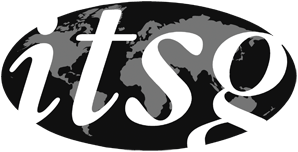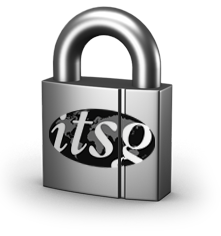Corporate Tax Guide: Singapore

Members:
- Sanjay Iyer (Silicon Advisers)
|
1. Country
The information is valid for the entire country except where indicated. For example, in the case of Malaysia, Labuan is part of Malaysia but has a special tax regime, so this is noted. |
Singapore - entire country | ||||||||||||||||||||||||||||
|
The corporate tax rate shown is the typical corporate tax rate that a domestic corporation owned by non-resident persons would pay. The tax rate does not include withholding tax on dividends, but does include a distribution tax shown separately if applicable. Certain countries have a low corporate tax rate, but charge an additional tax when a dividend is distributed. Because this tax is paid by the corporation, and not deducted from the amount of the dividend itself, it is not a dividend withholding tax. As a result, it typically cannot be reduced by an international tax treaty. |
Special rate: first 3 years after incorporation - 100% exemption first S$100k and 50% exemption next S$200k, if <20 shareholders or 1 shareholder with >10%. Excludes investment holding companies and property holding companies. | ||||||||||||||||||||||||||||
|
The basis of taxation for a corporation will typically be one of:
|
Territorial and remittance taxation basis with certain exemptions on remittance. | ||||||||||||||||||||||||||||
|
Where non-resident corporation carries on business in a country, business profits may be subject to corporate tax. In addition, a branch profits tax may apply in lieu of dividend withholding tax. This branch profits tax applies to the after tax profits, typically at a fixed percentage. An international tax treaty may reduce the rate of branch profits tax, typically to the rate provided for dividend withholding. |
No branch profits tax. | ||||||||||||||||||||||||||||
|
The common forms of business entity are noted. In addition, the entities which are flow through entities for U.S. tax purposes are indicated. |
Companies, trusts (certain situations), non-resident corporations. | ||||||||||||||||||||||||||||
|
Capital gains may be fully taxed, partially taxed or not at all. In certain countries, an exemption, called the participation exemption, will apply to exempt from tax a capital gain from disposition of a substantial holding of shares of a subsidiary. Where a participation exemption is applicable, it is noted together with a summary of the main conditions. |
No capital gains tax, except if series of transactions/short holding period: disposal treated as revenue (trading) and taxed at prevailing corporate tax rate. There is a safe harbour rule that exempts certain disposal gains under specific conditions. | ||||||||||||||||||||||||||||
|
Certain countries allow group taxation, otherwise known as consolidated tax filing. Here the tax returns of a group of corporations in the country may be combined together, which can be useful. If group taxation is permitted, it is noted along with the main conditions. |
Singapore does not have a consolidated tax regime. However, group relief allows the transfer of unutilised losses, unutilised capital allowances and unutilised donations from one qualifying company to be offset against the taxable profits of another qualifying company within the same group. To qualify, companies must be incorporated in Singapore and be at least 75% owned by another company in the group that is incorporated in Singapore, and must have the same accounting year-end. | ||||||||||||||||||||||||||||
|
Countries offer various kinds of special exemptions and incentives. Examples are a reduced tax rate, a tax holiday, a tax credit on the purchase of equipment, special accelerated deductions for deprecation, incentives for R&D, and various others. Here the major items are noted. |
PIC - up to 400% deduction / 60% cash payout on specified activities up to S$400k (deduction) or S$100k (cash payout). The limit can be increased from S$400k to S$600k. FSIE - remitted foreign sourced dividends, service income and branch profits are tax-exempt if the income has been subject to tax in a source jurisdiction with a headline rate >15%. Financial sector incentives: tax rates of <10% for qualifying financial services including fund management activities (5%/10%) and specified fund income (0%). Maritime sector incentives: exemption of profits earned from the operations of SG or foreign flagged ships in international waters. Trading: Global Trader Program provides for a lower corporate tax rate (5%/10%) where a company meets minimum thresholds of revenue, business spending and employees. Development and Expansion Incentive: provides a reduced corporate tax rate of 5% or 10% on incremental income from qualifying activities for a specified period of time. Applicants are required to submit plans for substantive commitments in manufacturing or growing leading-edge activities or capabilities in Singapore. | ||||||||||||||||||||||||||||
|
Many countries have thin capitalization rules which limit or deny the deduction of interest expense in certain circumstances. For example, if debt exceeds three times equity, a proportionate amount of interest expense may not be deductible. Limitations take various forms, restricting the interest expense deduction to a percentage of profit, deeming the debt to be equity and the interest to be a payment of dividends, and various other rules which may blend of these principles. Where a country has thin capitalization rules, they are briefly described. |
None | ||||||||||||||||||||||||||||
|
Many countries have transfer pricing rules. They very often follow the OECD guidelines and the arms length principle. Some countries have specific rules which apply in certain cases. In addition, some countries allow for a selection of the most appropriate transfer pricing methodology in the circumstances, while other countries follow a hierarchy of methods, with the CUP method (comparable uncontrolled price) often ranking first. The transfer pricing rules are briefly explained. |
Singapore has detailed transfer pricing guidelines that are similar to the OECD guidelines and follow the arm's length principle. Singapore allows for a selection of the most appropriate transfer pricing methodology. | ||||||||||||||||||||||||||||
|
11. CFC Rules
Many countries tax passive income earned in controlled foreign corporations (CFC’s) on an imputation basis while active income is not taxed. Such CFC rules are usually complex and vary significantly in what is considered passive income, and how foreign tax paid is taken into account. Some countries approach CFC rules on the basis of whether or not the foreign corporation is resident in a low tax jurisdiction or a tax haven. This may be done through a black list of countries. The general overview of CFC rules is described in simple terms. |
None. | ||||||||||||||||||||||||||||
|
Profits repatriated by way of dividends from a subsidiary to a parent company are typically taxed in one of three ways:
|
Single-tier income tax system: All dividends paid by a company are exempt from tax in the hands of the shareholders | ||||||||||||||||||||||||||||
|
Most countries allow a foreign tax credit based on a formula, typically net foreign income over the net income times taxes payable. This limits the foreign tax credit to roughly the domestic tax otherwise applicable to the foreign income. There are numerous variations and technical rules in the details of foreign tax credit calculations. Where a foreign tax credit is allowed, the general principles are described. |
Double tax relief - unilateral/treaty relief: ordinary credit (overall limitation). Foreign tax credit pooling is also available. | ||||||||||||||||||||||||||||
|
14. Losses
Losses typically can be carried forwards for a period of years, and sometimes can be carried back. Losses may be segregated into capital losses and non capital losses. |
Losses may be carried forward indefinitely, subject to the shareholding test. Unutilised capital allowances carried forward are subject to both the shareholding test and a "same business" test. Losses and unutilised capital allowances may be carried back for one year, subject to a cap of S$100,000 and the shareholding test. When current year unutilised capital allowances are carried back, the same business test also must be satisfied. | ||||||||||||||||||||||||||||
|
It is not practical to list all of the tax treaties which a country has in a simple guide like this. Accordingly, a link is provided in each case to the tax treaties. Some countries have entered into Tax Information Exchange Agreements (TIEA). Treaties are more and more containing provisions that limit benefits (LOB provisions). |
Singapore has 81 DTAs in force. Please refer to the following link: https://www.iras.gov.sg/irashome/Quick-Links/International-Tax/ Singapore has one TIEA (with Bermuda). Many of Singapore's tax treaties contains LOB provisions. | ||||||||||||||||||||||||||||
|
Withholding tax rates vary considerably from treaty to treaty, and countries may have domestic exemptions applicable in certain circumstances (for example copyright royalties, interest paid to arm’s length persons, etc.). A table shows the typical rates but cannot adequately summarize all of the details. The applicable treaty should be consulted. |
Dividends: 0% gross WHT; Interest: 15% gross WHT; Royalties: 10% gross WHT.
Non-resident PE taxed under CIT rate. SG Technical & Mgmt fees: 17% gross WHT; Directors' fees: 22% gross WHT. Charter fees: 2% gross WHT on aircrafts. O% gross WHT on ships. Artists/entertainers fees: 10% gross WHT. | ||||||||||||||||||||||||||||
|
17. Taxation Year
Some countries allow for the selection of year-end while other countries specify a particular year-end which all business entities must have. Normally the taxation year cannot exceed 12 months. Where it can exceed 12 months, this is noted. |
Singapore tax is on a preceding year basis. Taxation year is based on financial year-end of company (which can have any year-end date). The taxation year cannot exceed 12 months. | ||||||||||||||||||||||||||||
|
This is the due date for filing a tax return. Where extensions are available, this is noted. |
30th November for paper filing and 15th December for electronic filing. | ||||||||||||||||||||||||||||
|
19. Tax Instalments
The typical tax instalment requirements are noted. |
Companies may e-File or paper file their Estimated Chargeable Income (ECI) in advance of filing their tax return. The company will be granted installment to pay this depending on when the ECI is filed. | ||||||||||||||||||||||||||||
|
20. Payment of Tax
This is the date when the corporate tax owing for the year must be paid. It may be different from the tax return filing due date. |
30 days after the Notice of Assessment (once the tax return is filed). This payment (which is the difference between the actual tax payable and the estimated chargeable income) must be made as a lump sum. | ||||||||||||||||||||||||||||
|
This is the period after which the tax department cannot in normal circumstances reassess a taxation year. It is sometimes referenced to the end of the taxation year and sometimes to the date of the first assessment of that taxation year. |
The statutory time limit for IRAS to raise an assessment or additional assessment is four years. However, this statutory time limit will not apply to cases where fraud is involved. | ||||||||||||||||||||||||||||
|
If a country has exchange controls, this is noted, together with the main requirements. |
None | ||||||||||||||||||||||||||||
|
23. VAT
A VAT tax system typically provides that the supply of goods and services is classified as taxable, tax exempt, or zero rated. Where a business is engaged in an activity which is taxable, it must charge VAT on its revenue, and can claim a refund of VAT on its expenditures. Where the activity is exempt, it does not charge VAT on its revenue, and cannot claim back VAT paid. Where the entity is engaged in activities which are zero rated (typically agriculture, food services and exports), then it can claim back VAT which it has paid on its expenditures, and does not charge VAT on its revenue. If a country has a typical VAT system, this is noted. If a country has no VAT system but a sales tax system, this is indicated. Some countries may have a mixture, and taxes may apply at different levels (federal and state for example). |
Singapore has a typical VAT system (Goods & Services Tax). Goods & Services Tax is levied at 7% (standard rated). Zero-rated, exempt and out-of-scope supplies also apply in certain situations. | ||||||||||||||||||||||||||||
|
Stamp duty, or land transfer tax, can apply on such things as the transfer of shares, land, or the issuance of bonds or debentures. This is described together with the applicable rates. |
Transfer of Shares: 0.2% on the higher of the fair market value or the consideration paid for shares in a Singapore incorporated company. Transfer of Singapore real estate: Buyer Stamp Duty is applicable on all transactions: Buyer Stamp Duty (BSD):
Transfer of Singapore residential real estate: ABSD and SSD apply as well: Additional Buyer's Stamp Duty (ABSD):
Seller Stamp Duty (SSD):
| ||||||||||||||||||||||||||||
|
25. Capital Tax
If capital tax is payable, this is described. Capital tax may apply in specialized industries, such as banking and insurance, even if a country does not generally apply a capital tax to corporations. |
None. | ||||||||||||||||||||||||||||
|
26. Other Taxes
Where significant, other taxes are noted. |
None. | ||||||||||||||||||||||||||||
|
Anti-Avoidance Rules take many forms, the most common ones are a general anti-avoidance rule, treaty shopping limitations, the requirement for economic substance (or a business purpose in carrying out transaction) and specific anti-avoidance rules for particular purposes. A very brief overview of the anti-avoidance rules is described. |
Singapore has a general anti-avoidance provision that allows it to make adjustments to counteract any tax advantage obtained by a taxpayer under an arrangement that has not been carried out for bona fide commercial reasons with a main purpose to avoid or reduce taxation. | ||||||||||||||||||||||||||||
|
Where a non-resident person holds shares of a corporation established in the country listed, the capital gain which results may be taxable or not taxable depending on the circumstances and, possibly, the existences of an international tax treaty. The general rules are noted. |
No capital gains tax, except if series of transactions/short holding period: disposal treated as revenue (trading) and taxed at prevailing corporate tax rate. There is a safe harbour rule that exempts certain disposal gains under specific conditions. | ||||||||||||||||||||||||||||
|
Where a corporation is acquired through the purchase of shares, sometimes a step up is allowed so that the cost of its assets can be revalued. The main rules are briefly summarized. |
N/A | ||||||||||||||||||||||||||||
|
30. Use of Rulings
In some countries, rulings are commonly used (and sometimes even required). In other countries the system is either unavailable or not commonly used except in special circumstances. |
In certain cases, it is possible to obtain advanced rulings. | ||||||||||||||||||||||||||||
|
31. Other
Other important aspects of the tax system are noted. |
None. |

 Login
Login

















































